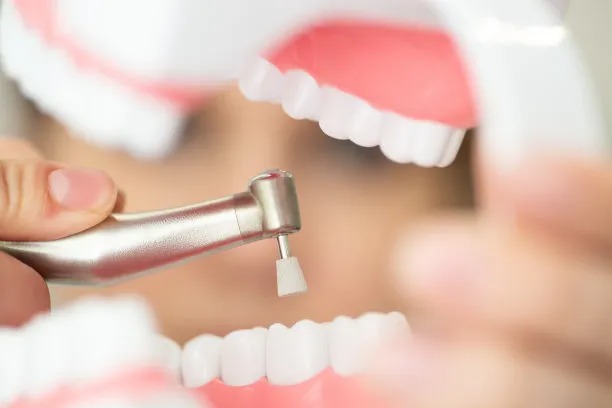Summary: Tooth extraction is an essential aspect of dental health management that can sometimes be necessary to maintain overall dental and oral health. This article explores the process of tooth extraction, the reasons why it may be necessary, the aftercare involved, and the psychological effects on patients. Each of these points is essential for understanding not only the practical side of tooth extraction but also its broader implications in dental care and patient well-being. By delving into these areas, we can appreciate why tooth extraction is often a critical decision within dental health management.
1. Reasons for Tooth Extraction in Dental Care

Tooth extractions are often deemed necessary for various reasons. One of the most common reasons is severe tooth decay. When a tooth is too damaged by decay to be repaired with fillings or crowns, extraction becomes the only viable solution to prevent further issues, including infection.
Another reason for tooth extraction is periodontal disease, which affects the supporting structures of the teeth. If gum disease progresses and causes significant bone loss, extraction may be required to maintain overall oral health and avert serious complications.
Additionally, wisdom teeth often necessitate extraction. These teeth can become impacted, pushing adjacent teeth out of alignment, leading to pain, infection, and other dental issues. Therefore, extraction is frequently recommended to prevent these potential problems.
2. The Tooth Extraction Process Explained
The process of extracting a tooth can vary based on its condition and location in the mouth. Initially, the dentist conducts a thorough examination, often involving X-rays, to understand the tooths health and the surrounding bone structure. Anesthesia is then administered to ensure the patient remains comfortable during the procedure.
Once the area is numb, the dentist carefully loosens the tooth using specialized instruments before extracting it. For impacted teeth, a surgical extraction may be necessary, which can involve making incisions in the gums, and sometimes removing bone if necessary.
Post-extraction, the dentist will provide instructions for care to minimize discomfort and promote healing. These precautions can include avoiding certain foods, maintaining oral hygiene, and taking prescribed medications. Understanding this process is crucial for patients to alleviate anxiety and ensure better outcomes.
3. Aftercare and Recovery Following Extraction
Aftercare is a vital component of the tooth extraction process. Proper care post-extraction helps reduce complications such as infection and promotes quicker healing. Dentists typically advise patients to bite down on a gauze pad to control bleeding and replace it as needed.
Ice packs can be applied to minimize swelling in the first 24 hours. Patients are generally encouraged to rest and limit physical activity to aid recovery. Its also essential to follow prescribed medication regimens to manage pain effectively and control any potential infections.
Diet plays a crucial role in recovery; soft foods are normally recommended for several days following the procedure. Staying hydrated is equally important to support the healing process. By adhering to these aftercare guidelines, patients can reduce discomfort and ensure optimal healing post-extraction.
4. Psychological Impact of Tooth Extraction
Beyond the physical implications, the psychological impact of tooth extraction can be significant. Patients may experience anxiety and worry about the procedure and its aftermath. Its essential for dental professionals to address these fears by providing clear information about what to expect during and after the extraction.
Furthermore, the loss of a tooth can affect a patients self-esteem and body image. There may be concerns about appearance or functionality when speaking and eating. Dentists can help mitigate these effects by discussing options such as dental implants or bridges as replacements.
Therefore, managing the emotional aspects of tooth extraction is just as important as the procedural and medical components. Providing support and reassurance can greatly enhance a patients overall experience and recovery.
Summary:
In conclusion, tooth extraction is an important procedure in dental health management, driven by various factors, including decay, periodontal disease, and the need to remove problematic wisdom teeth. Understanding the extraction process, along with the required aftercare, is crucial for patients to navigate their recovery effectively. Additionally, addressing the psychological aspects helps enhance their dental experience. Ensuring patients are well-informed and supported is essential for optimal health outcomes.
This article is compiled by Vickong Dental and the content is for reference only.
Vickong Dental
Vickong Dental is a large medical group established in Hong Kong in 2008 by professors from well-known medical universities in Guangdong and Hong Kong, as well as medical doctors from key national '985' universities (including Master's supervisors and senior professors). The chain of branches brings together expert dentists with PhDs and Master's degrees from Hong Kong and Mainland China, committed to providing high-quality dental treatment.
"Vickong Dental Practices the University Motto of 'Healing and Serving Society,' with a Stable Operation for Sixteen Years. It Has Been honored with Hong Kong Enterprise Leaders's Choice,' and is a Global Trusted Implant Center for the Nobel Implant System. Recommended by Hong Kong Metro Broadcast and Guangdong Television, it Serves Customers from Over Thirty Countries and Regions, Gaining the Trust and Favor of Citizens from the Guangdong-Hong Kong-Macau Greater Bay Area and Surrounding Cities.

Thousands of customers' unanimous praise
The most recognized and highly recommended dental service by customers in the Guangdong-Hong Kong-Macau Greater Bay Area
We Ensure You Receive Detailed Care and Attention Here
Hong Kong standards, Shenzhen prices, Your Trusted English-speaking dentists

Vickong Dental Medical-Grade Instrument Disinfection Process
Vickong Dental Medical-Grade Instrument Disinfection Process

Vickong Dental Chain: A Warm and Comfortable Environment for Treatment






Appointment Hours

Q&A
Why choose Vickong Dental?
Vickong Dental practices the university motto 「Medicine to Benefit Society」, with each branch bringing together highly qualified dentists with doctoral and master’s degrees from Hong Kong and the Mainland, and has maintained seventeen years of steady operation。Recipient of 「2024 Hong Kong Enterprise Leaders Brand」, 「2025 Hong Kong Enterprise Leaders Brand」, a Nobel Biocare Global Trusted Implant Center, and a brand recommended by Metro Radio Hong Kong and Guangdong TV。
To date, we have served customers from more than thirty countries and regions,earning exceptionally high word-of-mouth recognition and trusted recommendations from residents across the Guangdong-Hong Kong-Macao Greater Bay Area and surrounding cities
We have eight major branches in Zhuhai、Shenzhen,and a consultation and service assurance center in Hong Kong,so you can book a free consultation at any time for any questions,which is very reassuring.
If I do not accept the quotation after the CT scan, will I be charged??
No! As long as the actual treatment has not started, you will not be charged any fees.
Will there be any additional charges during the treatment process?
No, there won’t be any additional charges. Before treatment begins, we will clearly explain the treatment plan and its corresponding fees. Only after the patient agrees and signs the consent form will we proceed with the dental service.
Can I pay in Hong Kong dollars?
Yes. Vickong Dental accepts payment in Hong Kong dollars. The amount will be converted based on the exchange rate of the day, and the applicable rate will be clearly communicated to you in advance.
Can I reschedule my appointment at any time?
Yes. Please contact us via **WeChat** or **WhatsApp** as early as possible, providing your original appointment time and details, along with your preferred new date and time slot for rescheduling.













